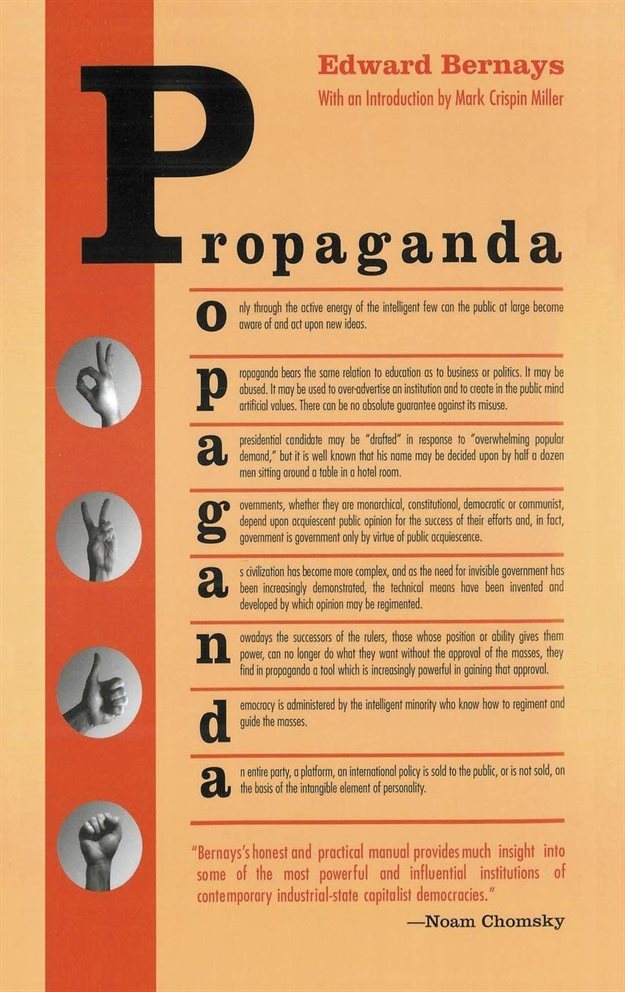#PulpNonFiction: Would a nudge by any other name sound as sweet?
Libertarian paternalism, nudging, behavioural economics, behavioural linguistics…
Call it whatever you like, but propaganda, that is the “conscious and intelligent manipulation of the habits and opinions of the masses”, is all around us. Whether it is through cleverly worded ad campaigns, or through co-ordinated media messaging (“Build Back Better”, anyone?), or through mazes of incentives, rewards and punishments that encourage us towards behaviour that suits the profits and objectives of the private sector businesses we buy from or the public sector institutions that govern us, and away from those that do not, we are constantly, subconsciously being nudged into line.
Sometimes, of course, these little nudges benefit everyone concerned. Who, for example, is harmed if a medial insurer encourages their clients to make healthier dietary or exercise choices? The insurer and their shareholders improve their profitability, and the client improves their health and longevity. Win-win. What is not to like?
Well, as it turns out, sometimes when those little nudges, however well intentioned, are automated, bad incentives can accidentally get baked into the system that end up working against the interests of all parties concerned.
Take my dad for instance. He signed up to one of those behavioural health insurance offers that offered him rewards points with a cash value in exchange for doing a variety of good and healthy things. One of the ways he could collect his points was by wearing a smart watch linked to his account profile that logged his step count and his heart rate and allocated points accordingly. Now, in order to achieve the maximum amount of points, he needed to get his heart rate over a pre-determined level. Fair enough (let’s ignore, for a minute, the other customers who have learned the trick of attaching the smartwatch to a small dog or handy grandchild, my dad is an honest man). This was all good and well, for a while that is, until my dad got too fit. You see, as his fitness level improved, he found he was having to run faster and faster to get his heart rate to go up enough to reach the level required to collect his points. You can probably tell how the story ends now. My dad has many wonderful attributes, but coordination is not his strongest point. One day, while out running, faster and faster, he tripped over his own feet and ended up in the emergency room with a nasty gash on his head and another one on his hand. Needless to say, although he is all mended now, the entire exercise ended up costing both my dad’s health and the medical aid’s cash flow more than they bargained for.
You might say it ended up being less of a nudge and more of a hard shove into the concrete curb.

The moral of the story is that incentives eat intentions for brunch. This means, when we decide to engage in manipulating the behaviour of others for the greater good, we should spend a bit more time thinking about how our best laid plans could go wrong, and take a bit more care to ensure we are not automating idiocy or inadvertently encouraging unintended outcomes (like expensive trips to the ER).
With great power, comes greater responsibility; especially when we are consciously using that power to change the thoughts, motivations and actions of others in ways they may not be fully aware of.





































